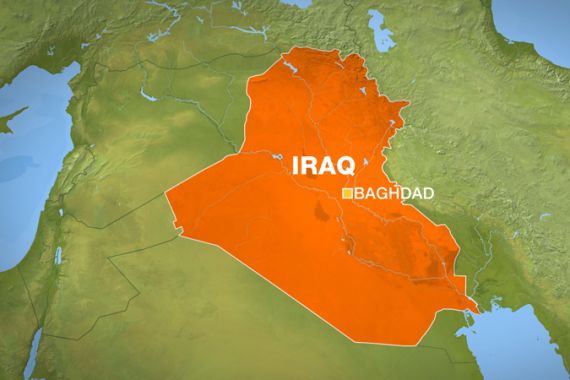Iraq: Country profile
Background on the history, politics, and economy of Iraq.

 |
History
Iraq has been home to some of the oldest civilisations in the world. Its fertile flood plains, between the Tigris and Euphrates rivers, where the site of ancient Mesopotamia, the so-called “cradle of civilisation”.
The same area nourished the Sumerians, Babylonians, and Assyrians, among many others. The Ottoman Empire occupied Iraq beginning in the 15th century, and finally relinquished control to the British after World War I.
When the British and French divided the region in the wake of that conflict, modern-day Iraq was drawn from the Zagros Mountains in the north to the Persian Gulf at its southeastern tip.
The boundaries ignored ethnic and religious divides, leaving Iraq remarkably diverse. Among the ethno-sectarian factions are Shia, Sunni, Christians, Kurds, Turkmen and many others.
Iraq was ruled by the Hashemite monarchy until 1958, when military officers launched a coup and announced a republican form of government. Another coup in 1963 brought the socialist, Arab nationalist Ba’ath Party to power.
|
Quick facts on Iraq Population: 30,399,572 (July 2011 est.) Capital: Baghdad, population 5.751 million (2009) Religion: Shia Muslim, 60-65 per cent; Sunni Muslim, 32-37 per cent; Christian or other, 3 per cent Languages: Arabic, Kurdish Literacy rate: 74 per cent (2000 est.) Source: CIA World Factbook |
In 1979, Saddam Hussein came to power as president of Iraq after his predecessor resigned. A year later, he ordered the invasion of neighbouring Iran over border disputes.
The attack began a devastating eight-year-long war between the two powers, resulting in hundreds of thousands of casualties on each side. When the war ended in 1988, neither side had gained significant territory.
Saddam invaded Kuwait in 1990, claiming that the country legitimately belonged to Iraq. The move led to international outcry, and a United States-led army soon pushed Iraqi forces out of Kuwait.
The United Nations imposed crippling economic sanctions on Iraq, which remained in effect until 2003.
After the September 11, 2001, attacks on the World Trade Center and Pentagon, US President George W Bush and his administration accused Saddam of attempting to acquire “weapons of mass destruction” and of having ties with al-Qaeda and other terrorist organisations.
In 2003, US troops invaded Iraq. Already weakened by the long-running sanctions, Saddam’s army quickly collapsed in the face of the invasion.
No weapons of mass destruction were ever found. Saddam was captured in 2003 and hanged three years later.
Politics and security
Shortly after the US-led invasion, power was consolidated in the Coalition Provisional Authority (CPA), which was headed by American officials. The CPA, in turn, yielded way to two interim Iraqi governments.
The current prime minister, Nouri al-Maliki, took office in 2006 when the United Iraqi Alliance won a majority of parliamentary seats in an election marred by a boycott by Iraq’s Sunni minority.
Maliki’s State of Law coalition placed second in the next parliamentary elections in 2010, but after months of negotiations it clung to power by forging an alliance with a predominantly Shia bloc, securing a second term as prime minister for Maliki.
The Iraqi constitution allows for semi-autonomous regional governments. The Kurdistan Regional Government (KRG)governs the three northern governorates of Dahuk, Erbil and Sulaymaniyah. The KRG has its own president and parliament, as well as its own security forces.
Security in Iraq deteriorated quickly after the US invasion. Many disaffected Sunnis took up arms against the occupation and a Shia militia led by anti-American cleric Moqtada al-Sadr fought US and Iraqi forces. The fighting reached its peak in 2006, when roughly 25,000 Iraqi civilians were killed.
The security situation has improved in recent years, although Iraq still endures dozens of attacks each week. Violence has increasingly targeted politicians, members of the security forces, and others affiliated with the government.
An agreement between Iraq and the US stipulates that all American military personnel will leave the country by Decmeber 31.
Religion and ethnicity
Iraq is one of four Muslim countries, along with Iran, Azerbaijan and Bahrain, in which Shia Muslims comprise a majority of the population. Iraq had been led by Sunnis, however, from the time of its independence until the US invasion in 2003.
During his reign, Saddam launched brutal attacks against Iraq’s Shia and Kurds. After an uprising in southern Iraq following the First Gulf War, Iraqi forces killed tens of thousands of Shia and drained the marshes where many Shia lived. Since 2003, Shia have played a much more prominent role in Iraqi politics.
Today, Shia form the majority in Iraq’s south, Kurds predominate in the northeast, and Sunnis in the centre of the country. Widespread distrust prevails among the three groups.
Oil economy
Iraq has the world’s third-largest reserves of oil, but decades of war and sanctions, coupled with widespread corruption, have kept that natural wealth from translating into widespread prosperity.
The economy is nonetheless dominated by the petroleum sector, which produced about 2.6 million barrels of oil per day over the last year. Iraq’s oil output accounts for roughly 90 per cent of the government budget.
Oil has become a contentious political issue because the government has yet to finish a long-awaited hydrocarbons law.
Agriculture accounts for slightly more than 10 per cent of the country’s gross domestic product.
Most Iraqis depend on the public sector which provides more than 50 per cent of the country’s jobs, a figure which has grown markedly since the 2003 invasion.
Unemployment hovers around the 20 per cent mark, with higher levels among Iraqi youth. Poverty is widespread, and basic services are sorely lacking. Electricity production has not kept up with consumption, for example, leading to hours-long blackouts for many Iraqis, particularly during the brutally hot summer months.